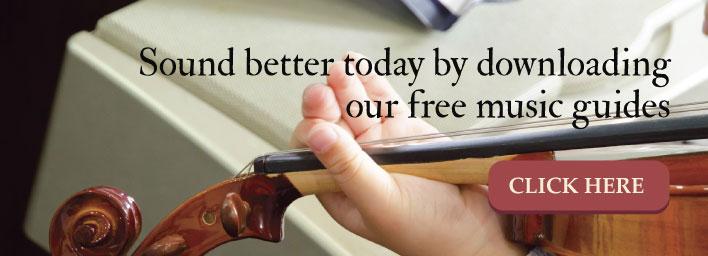How to Make a Good First Impression With Your Music Professors

C
ollegiate-level academia is an entirely new arena compared with the average American high school experience. Even honor students and those who were star athletes and musicians in their local communities can feel out-of-their league when they hop into the “big pond” that is their University of choice.
The first few weeks offer the opportunity to make a good first impression with your music professors and other university instructors, and their opinions matter. Not only can your professors’ impressions of you shape things like the type of orchestra or band you make it into or the reputation you develop within the music community, but they also shape the quality of the referrals and recommendations you have access to when moving forward in the pursuit of your music career.
The following are tips for making a good – and genuine – first impression. This is the best way of getting your proverbial foot in the door. And, don’t forget to visit our post, How to Make a Good Impression on a Music Teacher, as many of the same points apply here.
Always be on time and prepared
If you’re a self-initiating, driven personality type, this is a given. However, most freshmen find their parents had more to do with their previous academic/musical diligence than they cared to admit. Now, you’re the one who has to get up on time in the morning without parental threats of consequences. You are the one who needs to practice every day, have your sheet music and other accessories in your case, and remember rehearsal and call-times, etc.
Always be on time (early is better), be prepared, and consistently perform your very best. These are considered “givens” in the collegiate-level music world, and if you treat these expectations casually, your reputation is at risk.
Apply for a work-study position
Getting an on-campus job in your preferred department is a smart way to fund your music school experience, or to make the extra spending money you need along the way. Applying to work-study positions offered by your professor(s) or the music department is also an excellent way to get to know music professors and department staff on a more personal and in-depth level. Treat it as an internship, rather than “just a school job,” and do your best work.
Read, Music School Side Hustles That Earn You Money…, for more information on music-related to pay for school and related expenses.
Don’t write them off because they’re challenging
So often in life, the people who feel the most challenging at first become the people whom we respect and admire the most once we get to know them. The same is true for your college music professors. We’d bet that nine times out of ten, your efforts to get to know a difficult or intimidating music professor, continuing to rise to his/her expectations, will be one of your most rewarding university experiences.
If this is the first time you’ve encountered a problematic, strict, grouchy, or hyper-critical music professor or instructor – we assure you, it won’t’ be the last. In fact, many of the world’s best conductors and music directors are notorious for being difficult to work with. Your ability to be genuinely in their good graces will serve you well.
(Note: this is not to say that you should ever suffer abuse, harassment, or ill-treatment from a professor. If the professor is unethical or inappropriate with you or other students, his/her actions/words/behavior should be documented and reported to the campus authorities).
Strike up conversations
Depending on the size of the school you attend, and the average number of students on campus, it can be challenging to form a personal relationship with professors. And yet, those personal relationships matter down the road when you need a letter of recommendation for a graduate school or professional music position.
If you see professors around campus or in the community, and they are available, re-introduce yourself and state which class you have with them. Try to strike up a natural conversation about something the professor said that affected you or that you have in common, ask a question, or express interest in something you’ve learned about them during the first few weeks, etc. Learning the art of conversation will benefit you for the rest of your life, and certainly helps to make a good, personalized impression with new professors.
Congratulations on the beginning of the next, great chapter of your life. We hope you make positive first impressions on all of your music professors and that your experience at your new school continues to inspire and broaden your music horizons.
Sponsored by Thomastik-Infeld


